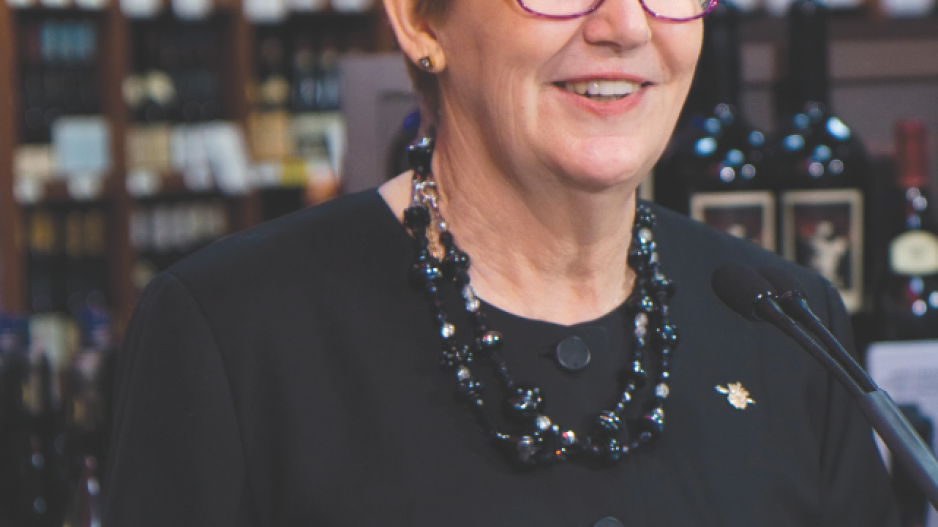Grocers can start selling alcohol on April 1, but will it be worth their while?
The biggest obstacle will be getting a licence.
To sell alcohol in a store within the grocery store, grocers need to buy a licence or lease space to a licensed entrepreneur. They must also be at least one kilometre from another alcohol retailer unless they buy the licence of an independent wine store or a VQA (Vintners Quality Alliance) store. Grocery executives told BIV that the store-within-a-store model is virtually impossible to execute unless the regulations change.
“There’ll be very few grocery stores selling wine if the geographic restriction is maintained,” Jim Pattison Group president Glen Clark told Business in Vancouver.
Grocery stores smaller than 10,000 square feet and larger department stores with grocery sections are not eligible.
The other option is to sell B.C. wine within grocery store aisles.
Attorney General Suzanne Anton told BIV on March 18 that the government will issue dozens of in-aisle licences to grocers, although she would not say how many or when she will announce more details about the option.
Dan Bregg, who is president and general manager at the Jim Pattison Group’s Buy-Low Foods division told BIV two days later that he is interested in the in-aisle option but remains uncertain of how he can make it work for the stores.
“We don’t see store within a store being a viable option for us primarily because of our locations, to my understanding, not being outside of the one-kilometre limit.”
The lack of clarity about how to get a licence to sell wine in-aisle has kept interested grocers from pursuing alcohol sales.
“We’re keen,” said Thrifty Foods communications manager Erin Coulson. “We’re interested and listening and learning and absorbing as much as we can.”
International wine sellers are also watching closely in part because wine industry lawyers, such as Mark Hicken, have told BIV that Victoria’s plan to expand preferential treatment for B.C. wines could contravene trade pacts.
Currently, B.C. has 21 stores that exclusively sell B.C. VQA products and they have been doing so since before the Canada-European Community Wine and Spirits Agreement came into force.
The chairman of the Australian Grape and Wine Authority, Brian Walsh, wrote a letter to Premier Christy Clark earlier this month to question her on why B.C. wine merits extra protection beyond its existing perks.
Some of the perks Walsh noted included that:
•B.C. wineries are permitted to deliver wine directly to customers straight from the winery at prices that do not include all BCLDB fees and mark-ups that would be applied to international wines;
•So-called “cellared in Canada” wines, which are imported wines bottled in Canada can be delivered using the B.C. wine distribution system even though they are not B.C. wines.; and
•There is a program that provides rebates for B.C. wines sold through government liquor stores.
Walsh prefaced his remarks by saying that customers bought $217 mililon worth of B.C. VQA wine last year. That represents a 20.9% share of the total B.C. wine market.
Sales growth for B.C. wines was 12% for the year, which represents $24.2 million of additional sales, he wrote.
In contrast, Walsh wrote, Australian wine sales declined by 6%, or $4.72 million in 2014 to $82.2 million.
“In light of this, we query why the B.C. wine industry requires further preferential treatment,” Walsh wrote in his March 5 letter.




